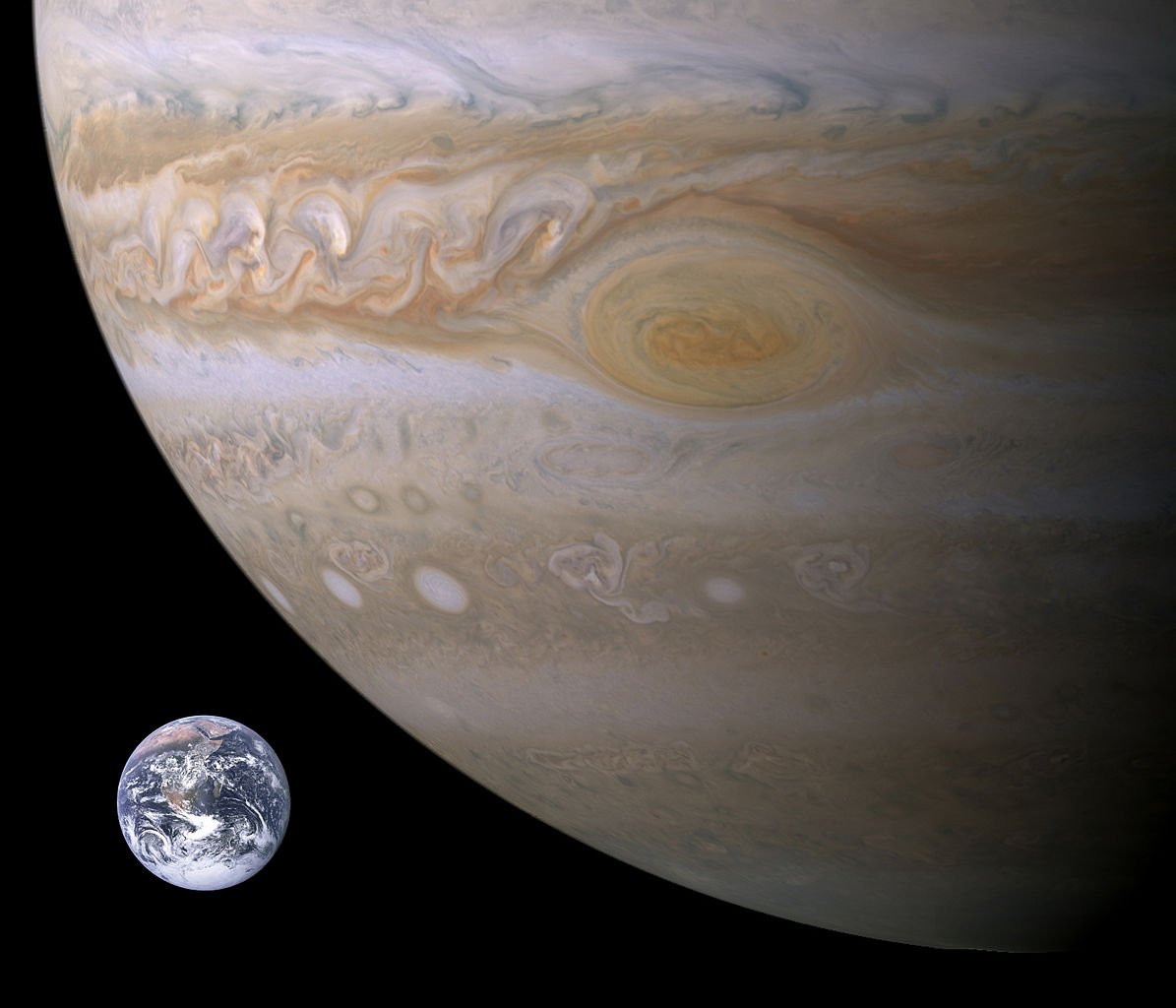Planet JUPITER
A look at the origins, meaning and usage of the place name "JUPITER". For word definitions see WordChecker belowBackground
Jupiter is the largest of the eight planets in our solar system. It is the fifth planet from the Sun, at a distance of 778 million kilometres. It is the largest planet by far, and it does nothing by halves: its diameter of 142,796 km is so big that all the seven other planets could fit inside it. It has a ring system and at least 67 moons, one of them larger than the smallest planet. Jupiter can be seen from Earth with the naked eye.
Pronunciation: /ˈdʒuːpɪtər/
Origins, meaning and usage of the name
Because of this planet’s immense size and obvious power, the Romans named it after the king of all their gods, Jupiter (Latin: Iupiter), who was also the Roman god of the sky. They also called him Jove, and in fact the name Jupiter derives from the Latin Jovis pater, literally “Father Jove”. Though this was unknown to the Romans, “king of the gods” Jupiter does help maintain order within the solar system by stabilizing the orbits of the other planets through its sheer size.
The adjective from Jupiter is Jovian (capitalized as derived from a proper noun), as in: The Great Red Spot is clearly visible in the Jovian atmosphere. Fictional inhabitants of Jupiter have been known as Jovians or Jupiterians. Planet Jupiter and its many moons have featured in various works of fiction.
Above: A visual comparison of Jupiter and Earth, by NASA. The image of Jupiter was captured by the Cassini space probe in 2000. Another king-sized feature of Jupiter is clearly visible — the “Great Red Spot”, which is actually a giant storm in the Jovian atmosphere that looks similar to a hurricane on Earth. In fact, the Great Red Spot is three times the size of our own planet and its wind speeds can reach nearly 700 kilometres per hour (compared to 300 kph on Earth).
Example sentences:
- Jupiter is the largest planet in the solar system.
- NASA's spacecraft discovered that on Jupiter’s moon Io the volcanoes are active.
Above: “Jupiter, the Bringer of Jollity” is the fourth movement of The Planets, written by the English composer Gustav Holst between 1914 and 1916. The Roman god Jupiter was king of the sky and all the other gods, but he was also associated with benevolence, generosity and “joviality”. Interestingly, Holst chose the word “jollity” rather than “joviality” which is derived from Jupiter’s other name, Jove. Holst’s fourth movement exudes both jollity and majesty with its uplifting crescendos, rich and appealing tunes, and moments of majestic solemnity.
solar system (noun): our sun and the eight planets (and other bodies) that go around it
do nothing by halves (verb): do everything in a big or enthusiastic way
naked eye (noun): unassisted vision; the eye without help from a telescope
the Romans (noun): people of the ancient civilization that was based on Rome, Italy some 2000 years ago
jollity (noun): the state of being lively, cheerful and happy

